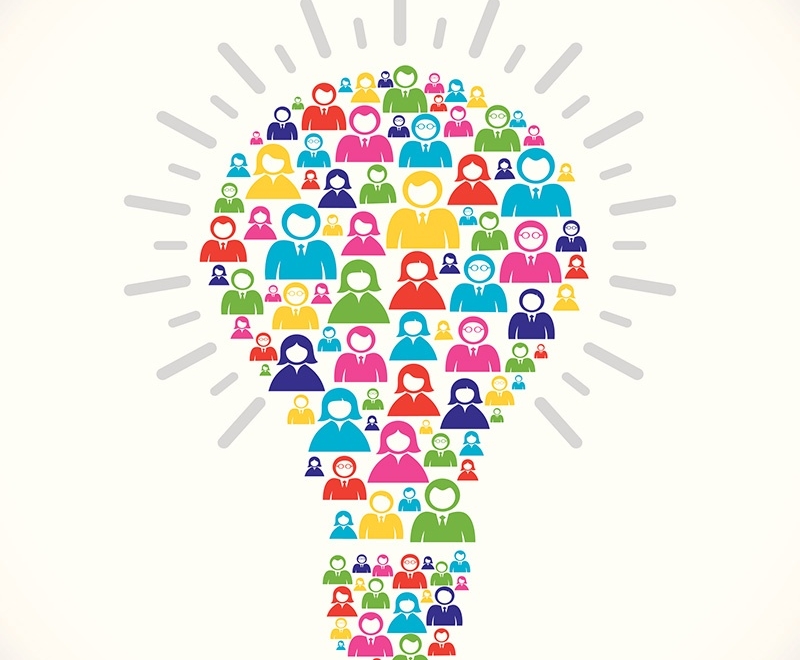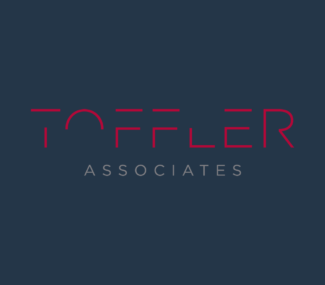Why Crowdsourcing May Be the World’s Greatest Shared Asset

Consider Wikipedia, Kickstarter, 99 Designs. All are crowdsourcing platforms. All create value by using connectivity and a central platform to aggregate and assess information, ideas, funds, and other resources from a massive bank of contributors.
By 2030, the global population will expand by 1.2 Billion (to reach 8.5 Billion). Simultaneously, the number of people connected to one another via Internet-linked devices will almost double from 3.5 Billion to 6.5 Billion. As more people – and a greater percentage of the Earth’s population – are connected, crowdsourcing likely will be both a platform and beneficiary of a global effort to help ideas and solutions gain traction and grow.
Crowdsourcing is Exponentially Impactful
We are standing in the midst of an era when crowdsourcing could prove to be the most powerful shared asset on the planet. But there is a caveat. As we’ve already seen with the mainstreaming of Big Data, more information does not equal more useful information. For relevance, we need the ability to parse, connect, apply, and disseminate in an intelligent and creative way. Fortunately, the blistering growth in the connected population is being matched in pace by developments in Artificial Intelligence (AI) and associated technologies.
As the human population grows over the next decade, so too will the population of AI-related systems – from a market size of approximately $310 Million today to more than $16 Billion by 2025. And it’s reasonable to predict that the new technologies will be thousands of times more powerful and capable than what we have engaged to date. In part, that’s due to the growing hyperconnectivity that is feeding more information into the global database.
This confluence means that not only will we have a deepening well of global issues and ideas, but we will have a larger and stronger resource for managing the information explosion. And with that in mind, we can imagine how AI-augmented crowdsourcing will have the capacity to be a very real source of solutions to some of the world’s most important questions and needs.
Solving Enduring and New Complex Global Problems
As has been the case, real problem solving and innovation will take place in the individual and collective minds of the people. Similar to what is already being observed in boardrooms and other knowledge spaces now, AI will not be at the table to supplant the human thinkers. Rather, it will assist by providing a hyper-capability of parsing massive amounts of information to pinpoint and analyze previously hidden ontologies, interdependencies, and convergences of ideas and solutions.
As the world is more and more connected and the web of connectivity has extended deep into new corners of places like third world countries, new critical problems will emerge – and new ways of thinking about solutions will be possible and necessary. But the volume of information will be so large that making sense of it in a timely and appropriate way will take more analytical capacity than even the most brilliant knowledge workers on their own could produce.
As this new model takes shape, it has the potential to provide a framework for addressing new and enduring questions in every category from science and technology to agriculture and climate. It will be a way for individuals, organizations, and communities to offer solutions from a limitless number of other contexts, and AI will be able to systematically identify what has been tried, what has worked and failed, and to spot previously unnoticed relevancies and applications.
For example, AI could see how components of a farming solution used in Malawi could have application to a water scarcity issue in Paraguay. The details could be minute enough that the human mind may not see how they are inter-related, yet those very details could be the exact solution necessary.
Building the Willingness to Collaborate
Of course, there will be stumbling blocks as the Internet extends into farther corners of the world, and as machines become ever more ubiquitous members of our problem-solving paradigms. It’s true that machines have replaced some knowledge workers’ roles. That reality creates fear and resistance. Yet, as the world adjusts to having machine learning as a mainstay in government and business endeavors, we can hope that efforts will succeed in balancing the scales.
The global work of people like Bill Gates and Elon Musk already hints at the possibility that our leading innovators will invite institutions, academia, and individuals to join in a technology-enabled platform designed to consider solutions to our hardest global problems. It’s not far-fetched to see the possibility of a new Nobel Prize of sorts emerging to incentivize these human/AI crowdsourcing endeavors, simply because we’re aware of the benefit that partnerships like this could mean for the good of our planet and humanity at large.
In The Third Wave, Alvin Toffler coined the term Prosumption to describe an economy where the roles of producers and consumers become blurred and gain unique importance, often not measured on a monetary scale. This kind of collaboration has taken hold everywhere from the self-checkout line at the grocery to scholars contributing to academic communities to enhance and extend learning.
A deep correlation exists between this communal give-and-take setup and the fundamental crowdsourcing model. And the world becomes ever more hyperconnected and the capacity of AI expands to make sense of greater, more disparate data, the value of this model will grow as a way to equip virtually everyone to be a more aware, considerate, productive global citizen.
It’s time to come together in ever more disparate connected global communities and to include AI as we work on our dedication to think in new ways about our most complex opportunities.
{{cta(‘bc9ba0a2-ec02-401a-8b7c-a568db3188ce’)}}
- Categories
- Futures and Foresight
- Strategic Planning

 About the Authors
About the Authors